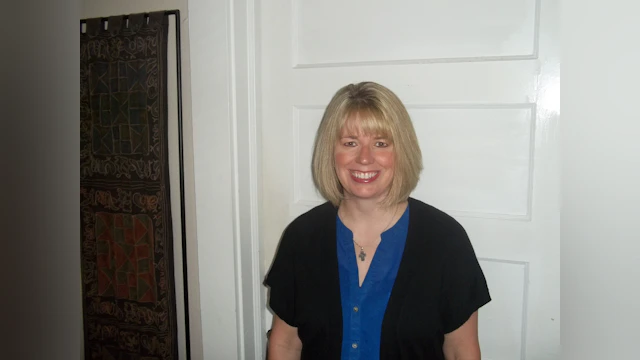Jun. 7, 2018- As I prepared to pack my bag to attend the 2017 AFSP Advocacy Forum in Washington, D.C. next week – an annual conference in which AFSP staff and volunteers gather in our nation’s capital to sit down with members of Congress and discuss issues important to suicide prevention – I decided to ask my clients who have been touched by suicide what they would want me to share with our legislators. In a way, I felt that I would be packing their ideas into my luggage to take with me.
I have been a therapist in South Carolina for almost 22 years. I quickly realized that a lot of people were adding things to my bag!
I asked my clients – as well as friends who have been affected by suicide – what worked for them, and what they would want for others who are still struggling. Overwhelmingly, in addition to access to care, and funding for research, resources and treatment, a powerful theme emerged: Hope.
“Tell them we need hope.” Many responded that what saved their life, or helped them after they lost someone they loved to suicide, was a place they could go and be cared for non-judgmentally. Mostly, what saved them was having another person present, emotionally and physically.
Many years ago, I had a client who had been struggling with suicidal thoughts for most of her life. I was trying to connect with her and engage her in living. When she told me she felt hopeless, I told her I had hope. I had hope for her future. I had hope in her ability to build a life worth living. I asked her to hold on to my hope until she regained hope of her own. Several months later, after much hard work, she came in and said, “I’m ready to give you your hope back…because now I have my own.”
I have hope that when we are in Washington sharing stories of need, of sorrow, and of lives that have been saved, our voices will be heard and remembered by those in Congress. I have hope that our leaders and representatives will join us in decreasing the suicide rate in America 20 percent by 2025. I have hope that our nation will maintain mental health and substance use coverage as an essential health care benefit. I have hope that those in Washington will ensure that Mental Health Parity laws and regulations are uniformly implemented on both a state and federal level. I have hope that we will make a difference in the future of mental health care and access to care.
But it’s not just my hope I am bringing with me. As I mentioned, I am carrying gifts of hope from many people I have come across: gifts of hope we can all hold on to in the important fight to decrease suicide. Gifts of comfort for those who must understand they are not alone in this journey. Gifts of a challenge: to turn a problem into an opportunity, and an opportunity into care. I am carrying their requests, and mine, that we hold on to hope until everyone has their own.
Learn more about AFSP’s Advocacy Forum.
